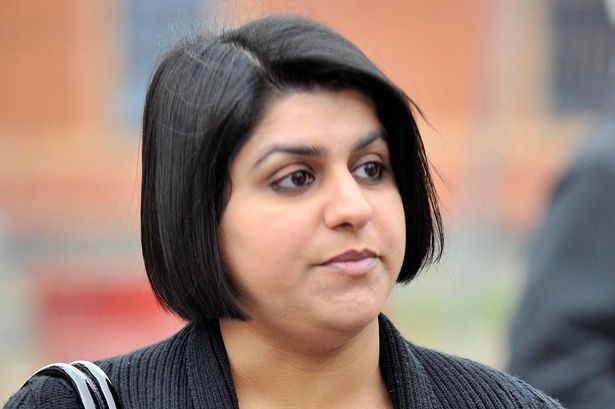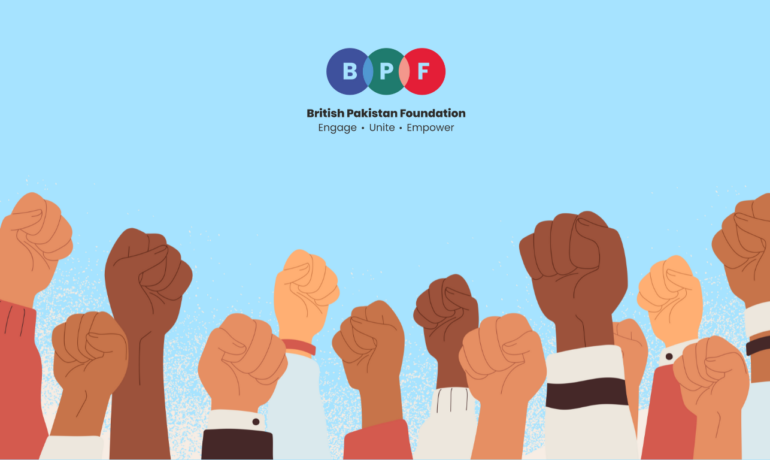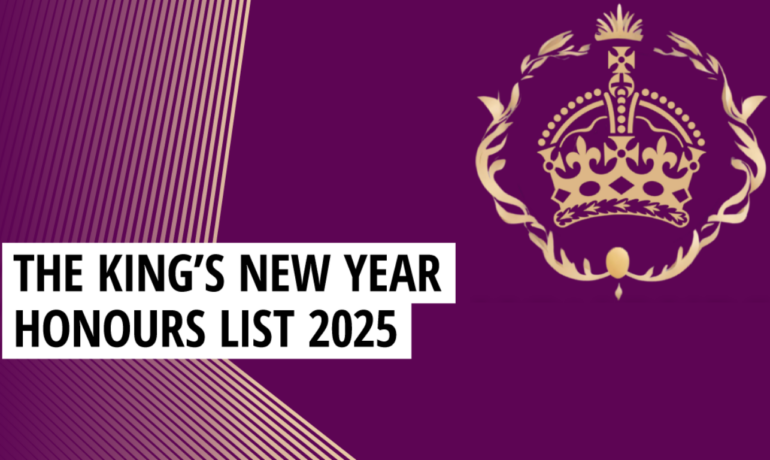Shabana Mahmood on issues Pakistani, British and economy…

Sonia Malik
Shabana Mahmood was one of the first Muslim women to be elected to the UK Parliament in May 2010. She has since been vocal about government engagement with ethnic minorities and, more recently, in favour of Britain taking in more Syrian refugees. The BPF had a chance to speak with Ms Mahmood about these matters and her initiatives in her constituency of Ladywood, Birmingham. Here are some excerpts.
You made history becoming one of the first female Muslim parliamentarians in the UK. How do you feel about this achievement? Do you feel you have additional pressure and responsibilities being a parliamentarian from a minority ethnic and religious background?
I did not realise during the campaigning that it was something, that there had been no [female] Muslim MPs before … But once you break through the ceiling it is actually quite overwhelming. And I also take pride in representing one of the biggest ethnic minority groups in the UK. There’s the pressure of setting the bar really high being the first Muslim woman parliamentarian as you are obliged to set a benchmark for other British ethnic minority women who would like to join politics and become a Member of Parliament.
What do you identify as the top issues in your area in Birmingham?
Jobs and the economy. They are always the most important issues. Unfortunately, unemployment is also very high in my constituency of Ladywood, Birmingham, and it is one of the things that I have to focus on. It is also one of the areas of Birmingham with a very high Muslim and a very high Pakistani population.
What are the biggest issues of the British Pakistani community in Ladywood? To what extent do the issues of the Pakistani community in London vary from those of the community in Birmingham? How are these being tackled?
The issues of the Pakistani community are not very different in different parts of the country. Generally, statistics for children entering higher education are improving over the years, but it still remains an issue, especially for Pakistanis and Bangladeshis. Both Bangladeshis and Pakistanis are equally likely to be less employed, so this is also one of the big issues. Also, many Pakistanis work in low-end jobs such as in hotels and newsagent shops, they are also more vulnerable to being paid below minimum wage, and scope for career growth remains low … one of the biggest issues concerning the Pakistanis. This is something we are working to improve.
What is your take on the integration of British Pakistanis into British society? How can this be made more effective?
The incumbent government isn’t addressing the issue of integration by forming partnerships at the community level. And it’s absolutely false that the Pakistanis don’t hold British values. It usually comes down to British values for the government as far as minority ethnicities and community isolation is concerned, but these communities do hold British values. They respect the rule of law, they want to live in a democracy and all of those are British values.
They want to be here in the first place because of those values. Again, integration of ethnic groups, Pakistanis or Bangladeshis, Is only possible if engagement is made at the community levels, and the current priority of most councils is budget reduction.
Female unemployment is a big issue in the Pakistani community. Are there any groups that you support or work with in order to overcome that, and has something been suggested to the government in regards to getting more South Asian women, particularly Pakistanis, into employment? How challenging is the issue?
Definitely. Another one of the issues of the Pakistani community is the women unemployment, particularly Pakistani women. It’s mostly the women who have immigrated from Pakistan as spouses, or even those of the older generation who moved to the UK, say 15 to 20 years ago, and this is a large number. And these are the women who remain unemployed. There’s a lack of skills, or problem with speaking English. Even with the Life In UK test, requirements have been increased in the last five years and many women acquired UK citizenship years ago, without having gone through the procedures that are in place now. Pakistani women born here had mostly ended up going to university and getting an education, and these women are employed.
Also, I would like to point out that there’s a parallel industry amongst the Pakistani community of cooking and supplying local grocers, stitching clothes, etc. This is a kind of activity that I would like to expand on in the future. Reach out to these women and give them the resources to become entrepreneurs. There’s a group called Female Entrepreneurs Council that works with such women and provides them the space and skills necessary to move forward.
The challenges remain but things have steadily improved over the years. Generally positive numbers are reflected when you look at the government statistics for the last five years.
How has been the experience of helping the Syrian refugees? What is your opinion about the government’s strategy for the refugee crisis?
I went to Greece for three days and worked with many Greek charities in helping people off boats arriving at the shore, giving them food and clothes, and just helping them generally.
As far as the government’s policy about taking in Syrian refugees is concerned, I think we can do more. We have done a great job of facilitating and accommodating refugees in the past, during World War II and the Holocaust. This is something we can do again. I think the government should take in at least 50,000 over the next five years instead of 10,000 as has been promised. All over the UK, if each council takes in 10 families each, these people will be adjusted and helped.
BPF Condemns Elon Musk’s Comments and Stands in Support of the Prime Minister’s Statement
The British Pakistan Foundation (BPF) condemns the recent comments
BPF Congratulates British Pakistanis Recognised in the King’s New Year Honours List 2025
The British Pakistan Foundation (BPF) would like to extend




